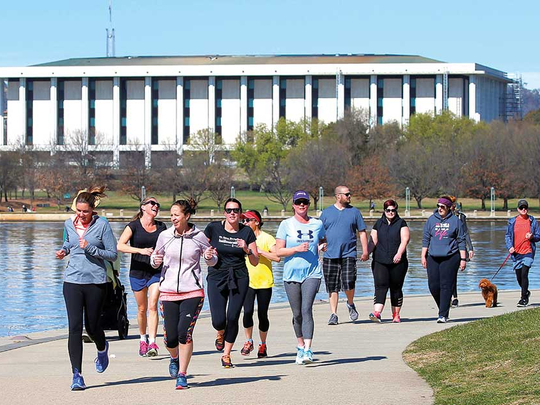
Canberra: Australia witnessed its warmest winter on record due to climate change, a study released on Tuesday by a leading climate group said.
‘The Hot and Dry: Australia’s Weird Winter’ report, released by the Climate Council, found that the average maximum temperature from June through August was 0.3 degrees Celsius higher than the previous record set in 2009. reports Xinhua News Agency.
The group has linked the record hot winter to “worsening climate change”, according to the BBC.
More than 260 heat and low rainfall records around Australia were broken this winter, the report said.
In July alone, 72 records were broken for the highest-ever winter temperature including in Sydney which set a record of 26.5 degrees Celsius.
“The average maximum temperature for Australia this winter was 23.7 Celsius, 1.9 Celsius above the 1961-1990 average (21.8 Celsius),” David Alexander, a scientist from the Climate Council, told Xinhua.
The country also experienced its driest June in history and also the driest winter since 2002.
It marks the 10th time since the year 2000 that Australia has set a new record for seasonal maximum temperatures; a trend Alexander said was set to continue.
The Climate Council warned that dry conditions meant that much of the country was at high risk of a severe bushfire season this upcoming summer.
The Climate Council is an independent, non-profit organisation that was set up in 2013 to continue the work of its government-funded predecessor, which was abolished by the Tony Abbott government.
It said climate change and the burning of fossil fuels had driven Australia’s average winter temperature up by about 1C since 1910. That figure was reported by the CSIRO, the nation’s scientific research body, last year.
“It is expected that the chance of warm winters like 2017 occurring will continue to increase as global temperatures rise,” the report added.
The council has called for greater action to reduce Australia’s fossil fuel emissions.
A spokesman for the Minister for Environment and Energy told the BBC the government’s target to cut emissions by 26 to 28 per cent below 2005 levels were comparable with other advanced economies and that Australia was on track to beat its 2020 Kyoto target.
However, Prime Minister Malcolm Turnbull has been criticised in recent weeks for trying to keep a large polluting coal-fired power station open against the station owner’s wishes.
In September, the Bureau of Meteorology released figures which showed Australia had undergone its hottest winter on record.
Average maximum temperatures from June to August were 1.9C above average, an increase of 0.3C above the 2009 record.
The Climate Council’s report also reiterated concerns raised by fire authorities that the warm and dry winter had set the scene for a dangerous upcoming bushfire season. About one third of Australia, including major capital cities on the east and south coasts, are facing an elevated bushfire risk for this summer.
Heatwaves have increased in duration, frequency and intensity across many regions in Australia, with large areas of the southeast suffering intense heat last summer.












